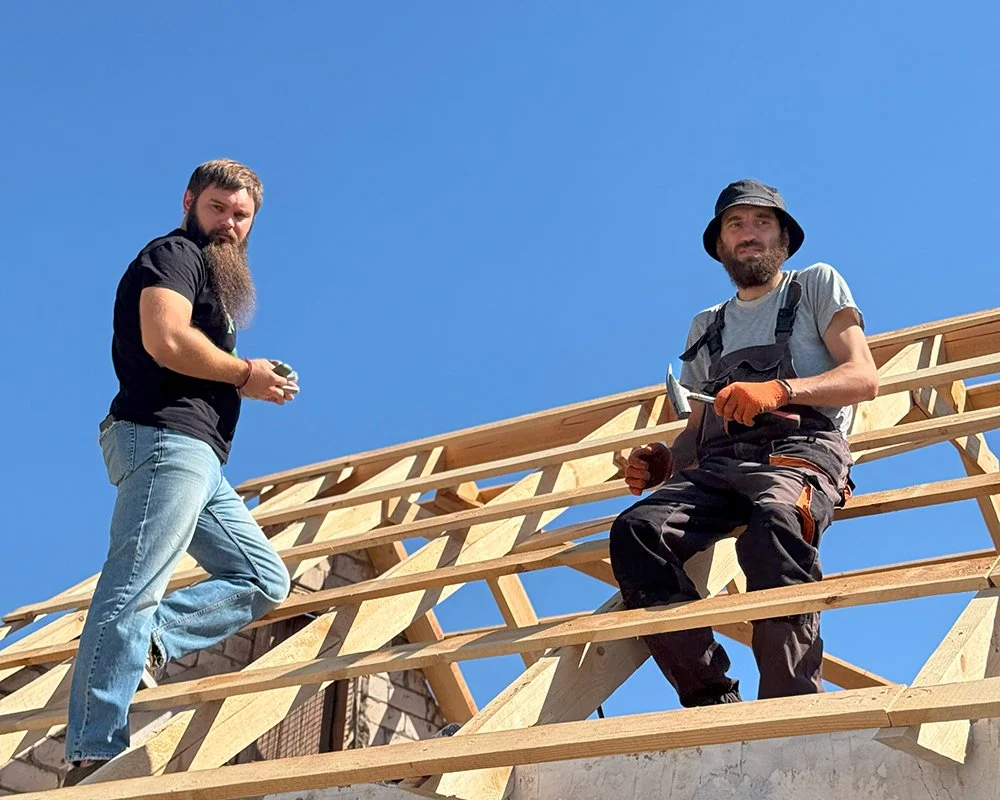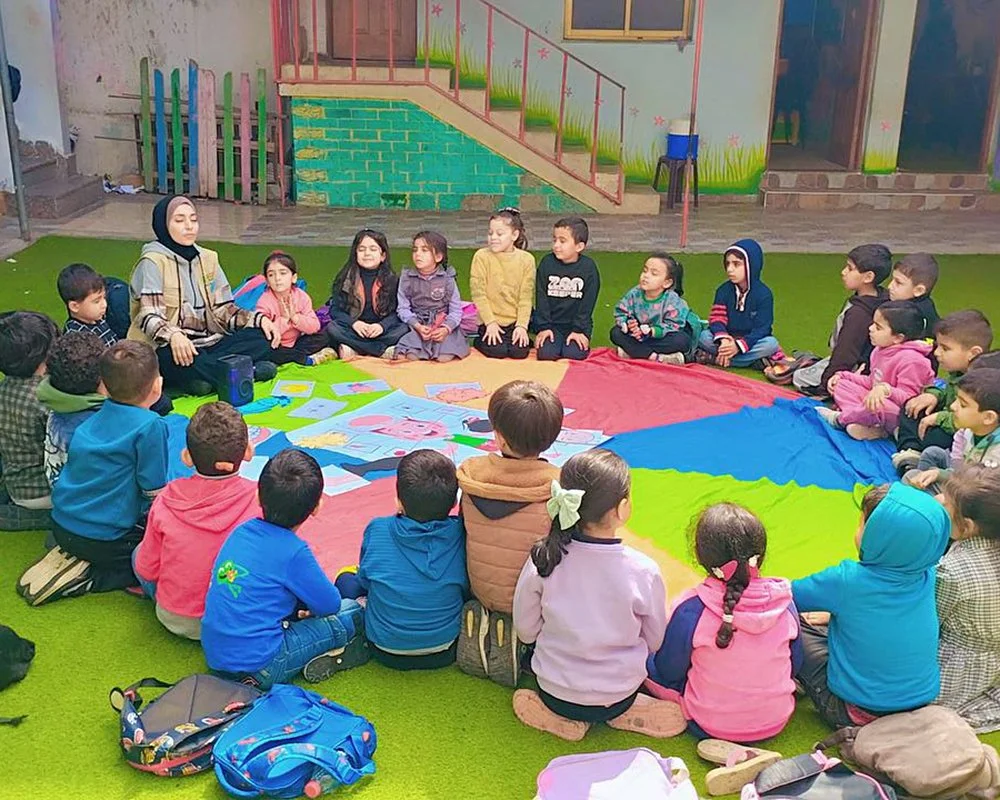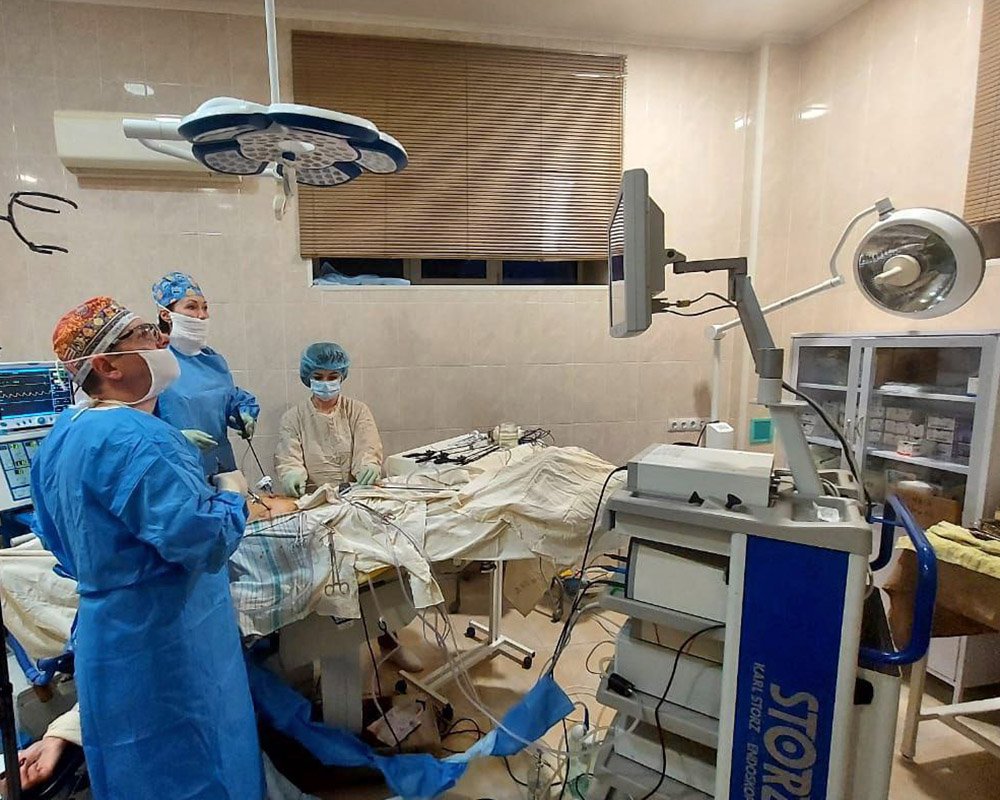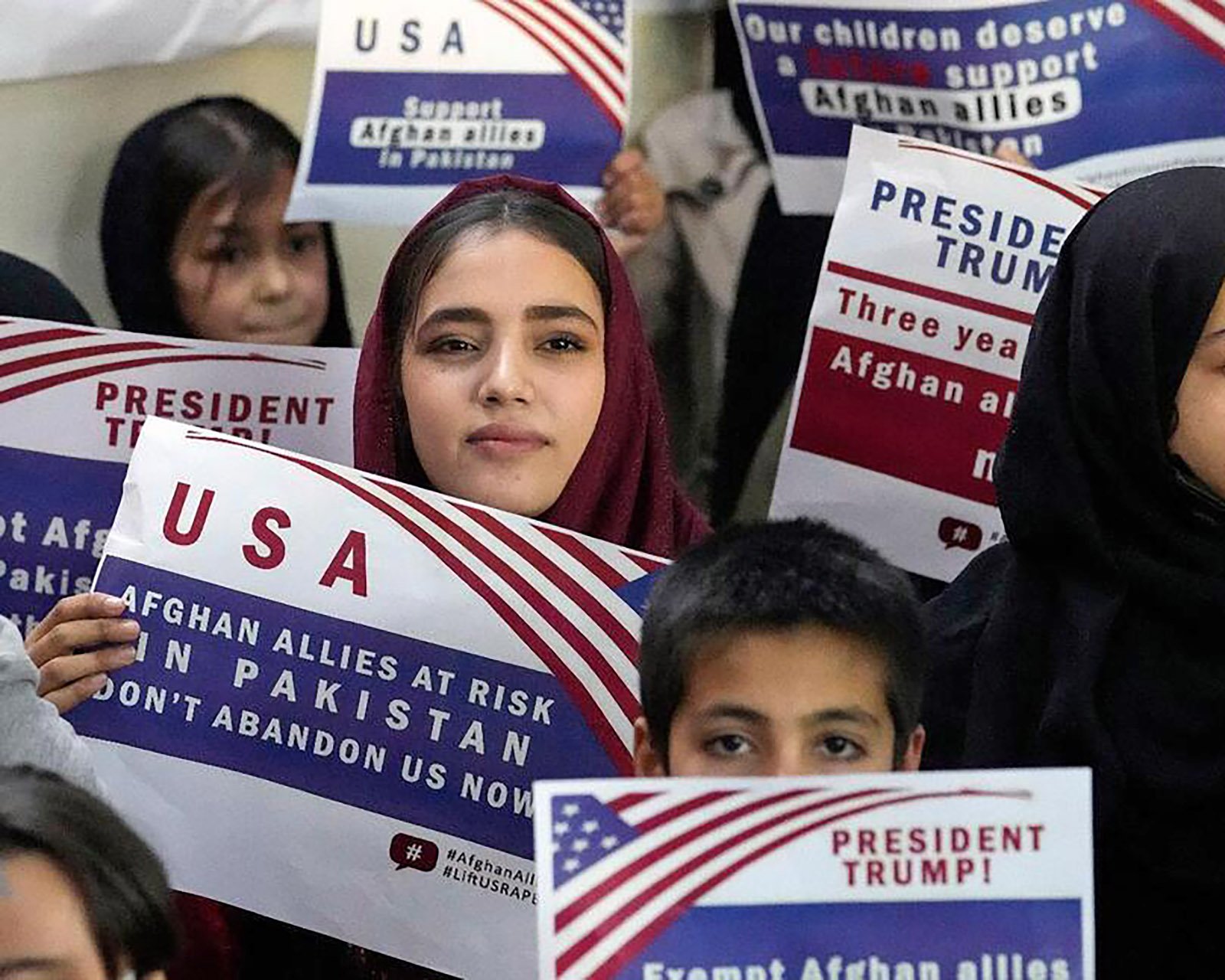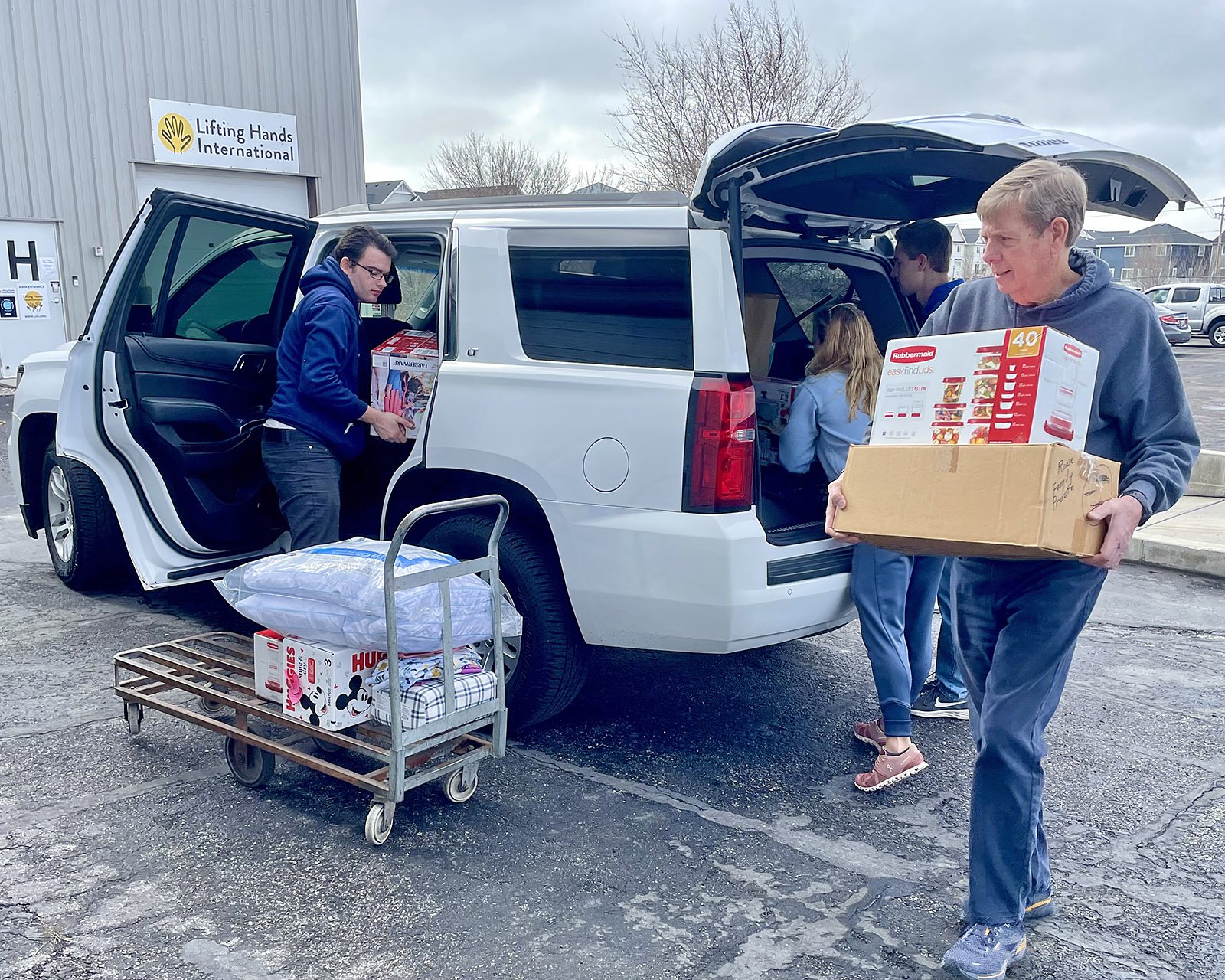By Ihor Tereshchenko, LHI Ukraine Country Director
Hanna Derkach is one of the incredible team members at City of Strength’s Family Support Center in Kherson.
Kherson is a city living in two realities. The Dnipro River cuts the city in half—both geographically and existentially. On the right bank, Ukrainians endure daily missile strikes, drone attacks, and artillery fire. On the left, under Russian occupation, life has disappeared from view. Information is scarce, contact is limited, and the humanitarian situation remains unknown.
Areas in red are under Russian occupation. As you approach the Dnipro River, life begins to go silent.
Getting into the city isn’t simple. Just days before our arrival, more than twenty civilian vehicles were attacked by Russian drones along the main highway. Locals now call it “the road of death.”
Netting stretched across the roadside.
Long stretches are covered in camouflage netting—laid like webs across and beside the road—forming a kind of improvised tunnel. It’s a protective measure meant to confuse the drones, but it doesn’t make you feel any safer. Helmets and body armor are essential. Seatbelts are avoided to ensure you can escape quickly if needed. Some drones now reach speeds over 90 mph (145 km/h), so movement becomes a calculated risk.
The attacks often seem intentional, not random. Civilians appear to be used for drone operator training. Soldiers and civilians are no longer distinguished. If you’re in a vehicle—or even just visible—that’s enough.
Many buildings and businesses have been boarded up and closed.
That kind of environment forces you to prepare differently. Before entering, we double-checked our medical kits, packed tourniquets, and hemostatics. Helmets and armor aren’t just protocol—they are non-negotiable.
Once inside the city, the contrast is staggering. At first glance, life persists. A few shops remain open. Mail still gets delivered to some places. People walk their dogs. But the closer you get to the river—to the occupied zone—the more it shifts. Streets go quiet. Windows are covered or shattered. People move quickly, staying close to buildings or ducking under trees. Our drone scanner beeped constantly. Drones have replaced birds here.
Kherson’s people navigate streets full of ruined buildings.
Kherson is filled with sounds. But it’s not the sounds of a city—it’s the sounds of war: shelling, rockets, guided bombs. Every few minutes, another explosion, and everyone living here can tell them all apart. Artillery. Rockets. Drones. They even know which ones mean danger, and which ones mean progress. They know which ones bring hope—and which ones don’t.
Serhii Harbaruk is a member of the City of Strength repairs team.
Our visit focused on three main objectives: observing the work of local repair teams; visiting the Family Support Center funded by LHI; and meeting with our local partner organization City of Strength.
The repair team fixing a house’s destroyed roof.
These might seem like small things—repairs, workshops, counseling—but in a city like this, they are monumental. The repair teams fix roofs, doors, and windows. For families returning to bombed-out homes, it’s the difference between surviving and rebuilding.
Kids can create, play, and exercise with dedicated instructors.
The Family Support Center offers something rarer: stability. Mothers attend infant care and trauma recovery sessions. Children play, learn, and breathe safely. Psychologists offer counseling and group therapy. In a city under siege, this kind of space isn’t a luxury. It’s how you protect mental health when the physical world collapses.
While we were visiting the Center, our driver made a quick trip into the city center. A drone spotted his car and started following him. He had to take shelter in a bombed-out building, and for several minutes, we didn’t know if he’d make it back. That moment stayed with us for the rest of the day.
Kherson remains a city under siege. But it also remains standing. And even in the face of constant danger, the people are rebuilding homes, offering care, and walking their dogs. They keep going.
And so will we.








